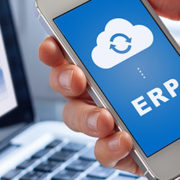What to do when your business outgrows QuickBooks
QuickBooks is an obvious go-to finance software solution for startups and SMEs. In fact, QuickBooks dominates the off-the-shelf accounting software market with a 62 percent lion share. This is because it is simple, easy to use, inexpensive, and familiar.
The problem with QuickBooks
As a generic small business accounting software, QuickBooks has some serious drawbacks. First of all, it is not designed for heavy lifting, making it nearly impossible to work on complex data with multiple variables. It also lacks sophisticated financial management functions such as advanced cash flow analytics, tracking, comprehensive reporting, and resource management.
Thirdly, QuickBooks’s primary functions are only centered around accounting, and their scope is limited to the very basics. This means you would still need other business management software to work alongside QuickBooks to fully digitize your enterprise. A business can quickly outgrow the platform once its financial transactions exceed a certain threshold.
Signs that your accounting needs are beyond QuickBooks
It is easy to bottom out QuickBooks’s capabilities without even realizing it. Here are the signs that your business needs a more robust small business accounting software:
Reliance on additional accounting solutions
Once you hit QuickBooks’s functionality limits, you might find yourself looking for additional tools to fill in the gaps. Your accountants may revert to primitive methods such as manual calculations and spreadsheets or seek out more effective accounting facilities elsewhere. If you have to process your finances using multiple systems, then QuickBooks is failing as your primary accounting software.
An expanding enterprise
You cannot realistically expect a rigid small business accounting software to match a growing business’s needs. According to QuickBooks’s user agreement, each license has a limit for the number of users, data storage, and file size. Since there is nothing you can do about these limits, it is impossible to scale the system’s performance beyond a certain point. This then becomes a problem when you want to increase your staff, sign new vendors, increase inventory caches, or open more locations.
New demands for complex resource management
Financial management and business accounting are growing more complicated due to increasingly sophisticated business models. Consolidating multiple income streams, managing dynamic inventory, tracking cash flow, analyzing financial performance, and automating entangled processes can be too much for a simple small business accounting software.
Nowadays, accounting is not just about balancing the books. Thanks to intelligent data systems, you can get a lot more from your financial information. If you are struggling to draw useful insights from your data or run complex accounting processes using QuickBooks, you need a digital upgrade.
The solution: upgrading to an ERP system
Having outgrown QuickBooks, the next step is to upgrade to an enterprise resource planning solution. ERP is a holistic business management software suite that integrates all the vital back-office functions from supply and distribution, sales, workflow management, and resource control to analytics.
Accounting is often tied to most of the core business processes, so it makes sense to have an enterprise-wide digital solution that covers financial management and all its dependencies. Unlike a small business accounting software, a centralized EPR solution shows you the whole picture and links every process through a common platform.
According to a recent report, 64 percent of organizations implement ERP solutions to improve their overall business performance — ERPs are not just for accounting.
Even better still is a cloud ERP that lets you manage a single establishment or multiple business locations remotely and conveniently. Acumatica is an ideal cloud ERP solution for businesses looking for more than the usual balance sheets from accounting software. Get in touch with us and learn how this powerful cloud ERP can help propel your business.












